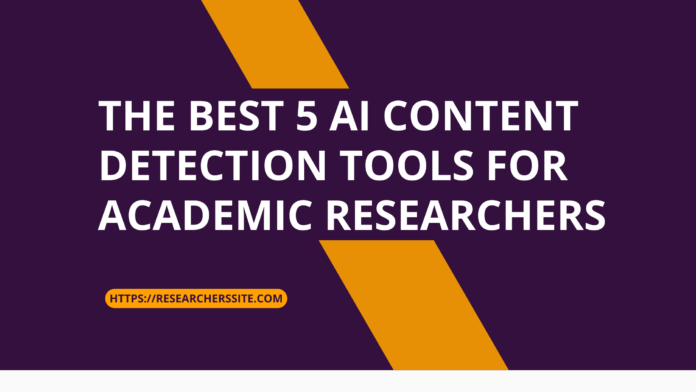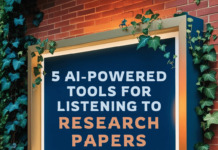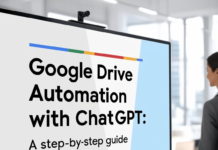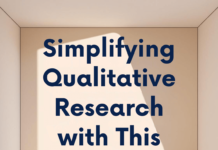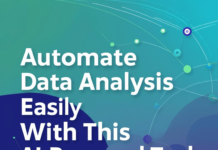With the rise of Artificial Intelligence (AI), it has become easier than ever to generate content that is indistinguishable from human-written text. This has led to an increase in plagiarism, as researchers can simply copy and paste AI-generated content without proper attribution. In this blog post, I will introduce you to five of the best AI content detection tools for academic researchers in 2023.
In order to protect your content from plagiarism, you can use an AI content detector tool. These state-of-the-art tools use AI to analyze text and identify patterns that are common in AI-generated content.
In addition to that the content detector tools allow you to quickly and easily identify any content in your manuscript that may have been plagiarized from AI.
The Best 5 AI Detection Tools for Academic Research
AI-generated text (aka machine-generated text or automated text) is a product of natural language processing techniques that enable machines to mimic human language patterns and generate text.
AI detector tools can help you detect if a text was written by a human or generated by an AI-powered tool. These tools are useful for various purposes such as checking for plagiarism, verifying the authenticity of content, and misinformation.
Numerous AI detector tools are accessible in the market. However, their reliability and accuracy levels can vary significantly. In this blog, I will review the best 5 AI content detector tools based on their features, accuracy, and ease of use.
No. #1 GPTZero
GPTZero is an AI detection tool that is particularly useful for academic researchers. It offers a user-friendly interface and is designed to detect AI-generated academic content.
It has a simple interface that allows you to type or paste your text and get a detection score in seconds.
You can use this free detector tool for content generation based on GPT4, GPT3, Bard, and Chat GPT language model.

Upon providing a text input, the tool analyzes the content and accentuates phrases composed by AI.
It is a cost-efective solution for ChatGPT instances. The add-in helps you identify when a MS Word document you are reading was written in part with AI.
Now, you can access the predictive engine where you read and assess documents. The add-in lets you highlight text and analyze it with a click of a button.
Recently, they have launched AI detection software, GPTZero Scaffold, and it is now fully integrated with Canvas.
No. #2 Writer AI Content Detector
Writer AI is ideal for academic scholars and copywriters. The content detector ensures that the content is free from AI-generated or plagiarized content.
The tool serves as a comprehensive platform that helps you by providing suggestions for grammar, tone, and also includes a plagiarism checker.
To use the AI content detection tool, you can visit the website here and paste a Uniform Resource Locator (URL). Apart from this you can enter text ( upto 1,500 Characters).

The tool provides the detection score in percentage that indicates how likely the text was generated by an AI tool.
Users have the option to input a URL or paste text directly into the window. Upon clicking ‘Analyze Text’ the platform will display the percentage of AI-generated content detected within the article.
This free tool you can use with certain limitations. It allows you to check up to 1,500 characters of potentially fake content.
No. #3 Originality.ai
Originality.ai can detect AI-generated content from a variety of sources, including articles, blog post. The tool is highly accurate, with a detection rate of over 95%.
The tool also offers a number of features that make it easy to use, such as a drag-and-drop interface and a detailed report that highlights the AI-generated content in the text.
The web application can distinguish texts created by GPT-3, GPT-4, and Chat GPT, and has a remarkable 98% accuracy rate for detecting GPT-4 content.

In addition to its role as an artificial intelligence checker, Originality AI also assists in detecting conventional plagiarism. This functionality is excellent for guaranteeing the absence of duplicate content on your website.
With its easy-to-use Plagiarism Checker and Readability Score Checker, it offers the optimal test and scores to boost your research visibility.
The most accurate Chat GPT, Bard, Paraphrasing, and GPT-4 AI detector built specifically for content marketers and SEOs. It requires at least 50 words of text to perform the analysis.
No. #4 Sapling AI Content Detection Tool
The tool gives a probability score that shows if the content could have been created by an AI model such as GPT-3.5 or ChatGPT.
You can use this tool as an AI writing detector for free.

Sapling.ai’s AI detector is a free and easy-to-use tool that can be accessed through their website or their browser extension. You can simply type or paste any text into the tool and get an instant score and analysis.
The AI detector allows you to verify the authenticity and quality of the sources and assists researchers to avoid plagiarism and ethical issues.
In addition to that, the tool shows you the probability that a piece of text is AI-generated or human-written as well as highlight the portions of the text that appear to be machine-generated.
The AI tool provides suggestions for writing better messages, such as correcting grammar, spelling, and tone errors, as well as generating personalized responses.
No. #5 CopyLeaks AI Detector Tool
CopyLeaks is another free AI detection tool that can also check for plagiarism in your text. With high accuracy rate, it can identify texts produced by GPT-3, GPT-3.5, ChatGPT, and GPT-4.
Moreover, the tool can detect texts that have been paraphrased by other tools.
CopyLeaks has a straightforward interface that lets you upload your text or URL and get a detection score in minutes.
Besides, it shows you the sources of plagiarism if any and highlights the parts of your text that are similar to them.
Now, you just copy and paste your content below :

Once you paste the content and click on “Check” (here I use the GPT4 Example), the AI-assisted tool quickly let you know if any of it has been created by AI with great accuracy.
Here is the result:

By hovering your cursor over the text, you can see the percentage of the probability for AI.
Besides being an AI detection tool, CopyLeaks is also a plagiarism checker that can help you safeguard your intellectual property and avoid academic dishonesty.
The tool has the ability to identify the content that is created by GPT4, ChatGPT, Google Bard, human, or a mix of AI and human.
Wrap-up
In the age of artificial intelligence, AI detection tools play a pivotal role for verifying the authenticity and originality of content. Academic researchers can use these tools to prevent plagiarism, misinformation, and low-quality content.
Despite having different features, accuracy rates, and prices, they all offer dependable and helpful services for identifying AI content.
The most of the tools mentioned here are either free or offer a free trial. But if you are considering using an AI content detection checker consistently, I recommend opting for a subscription with one of the widely recognized platforms.
We hope this blog post has helped you learn more about AI detection tools and how to use them. If you have any questions or comments, feel free to leave them below. Thank you for reading!


